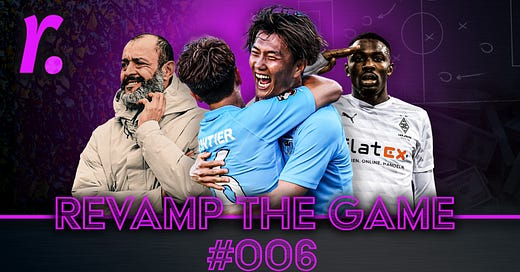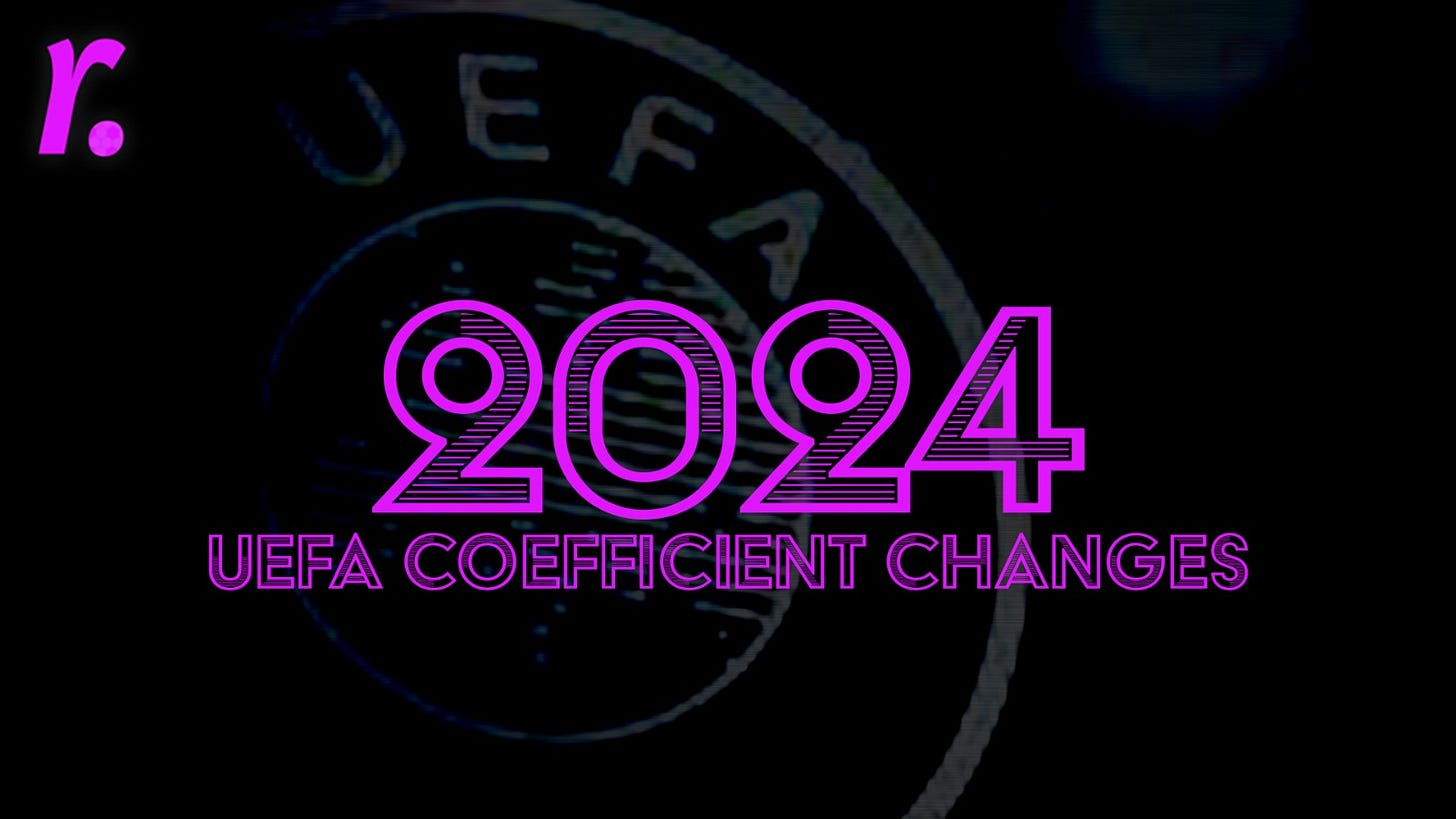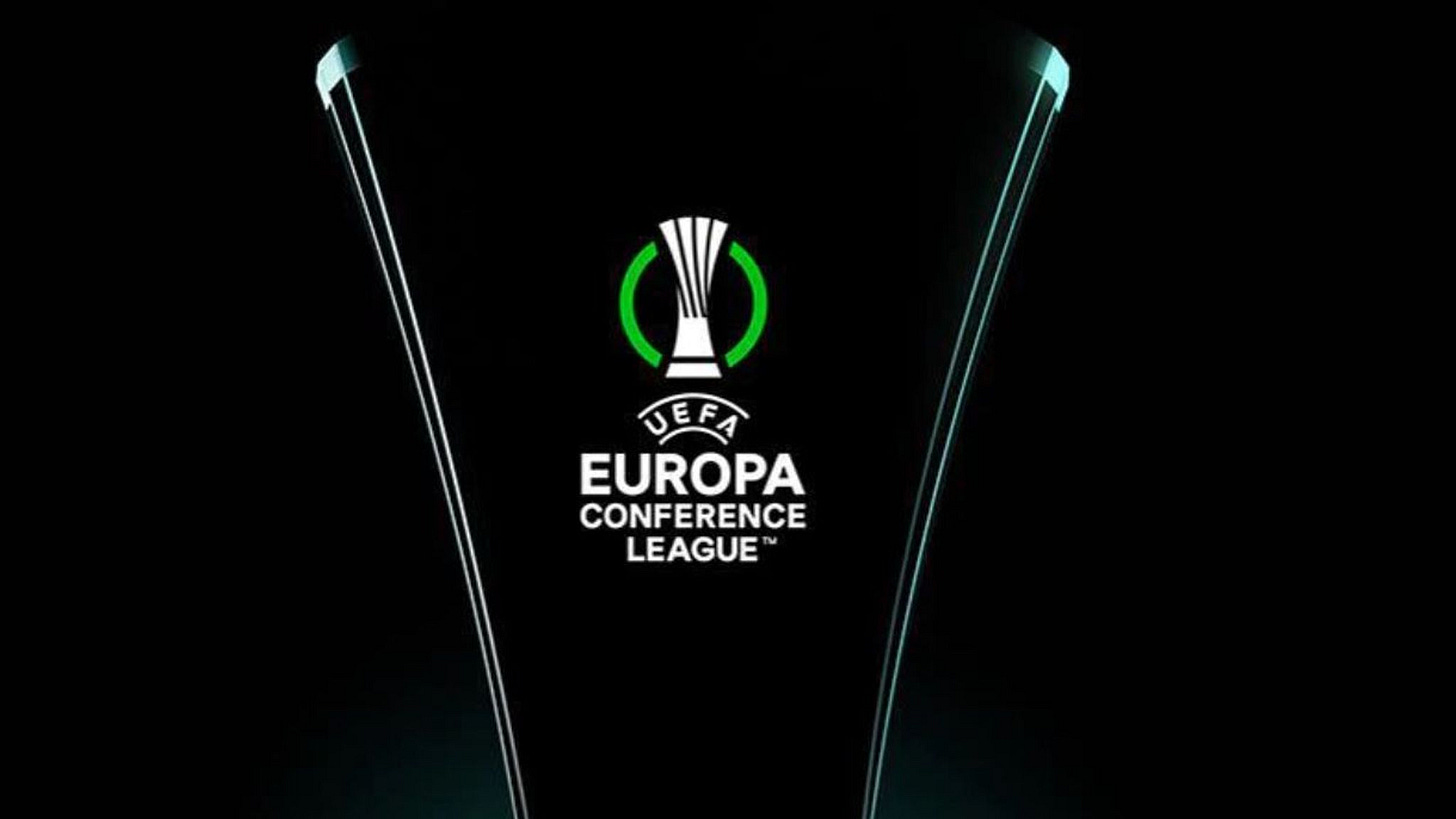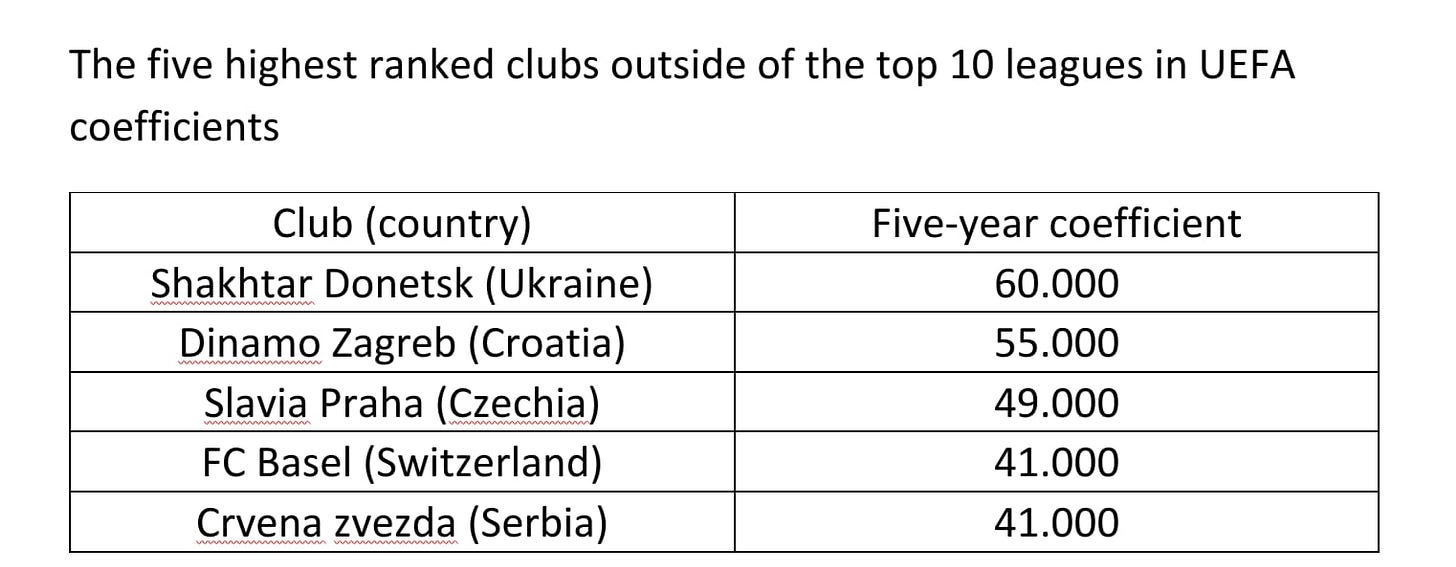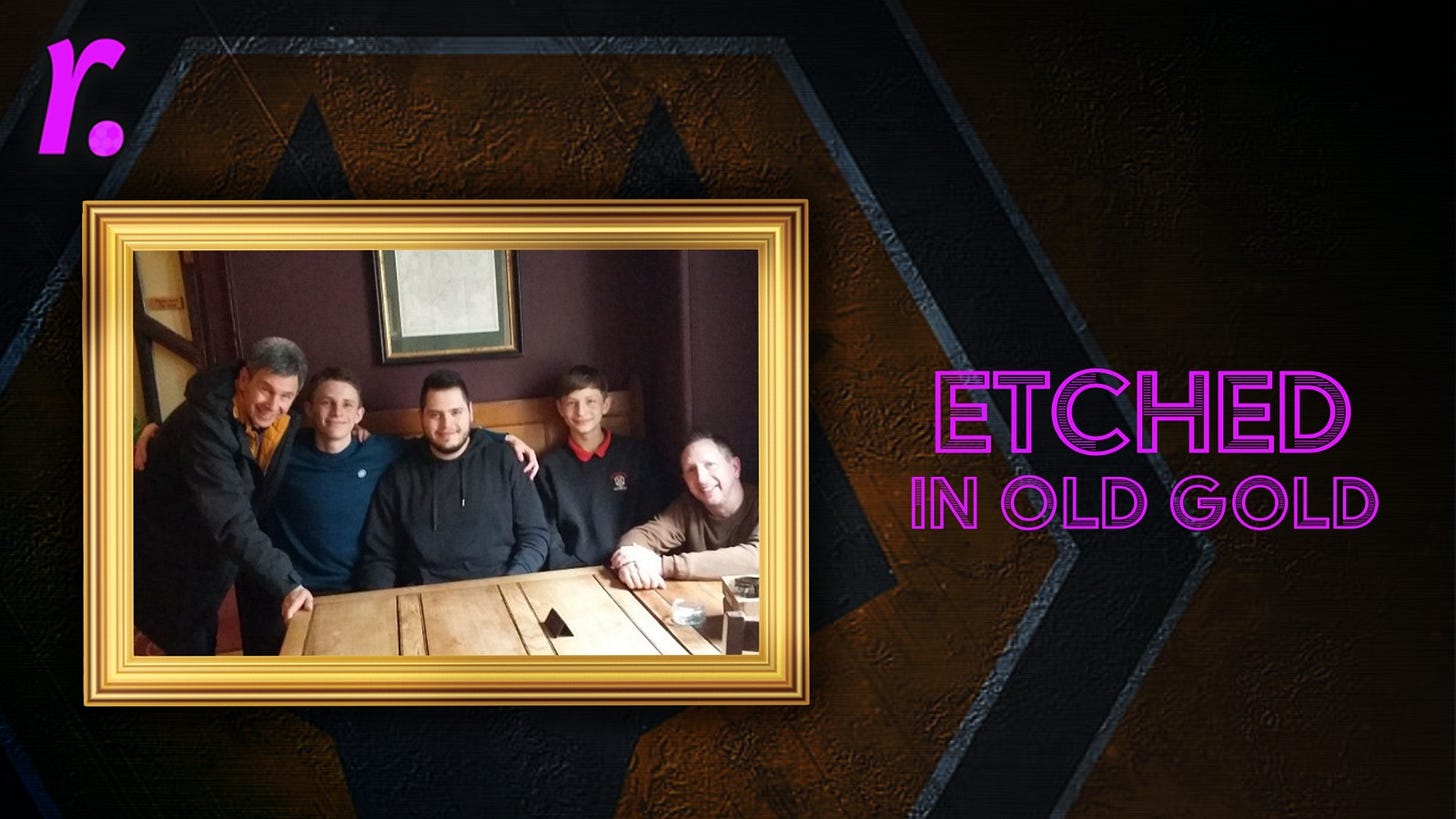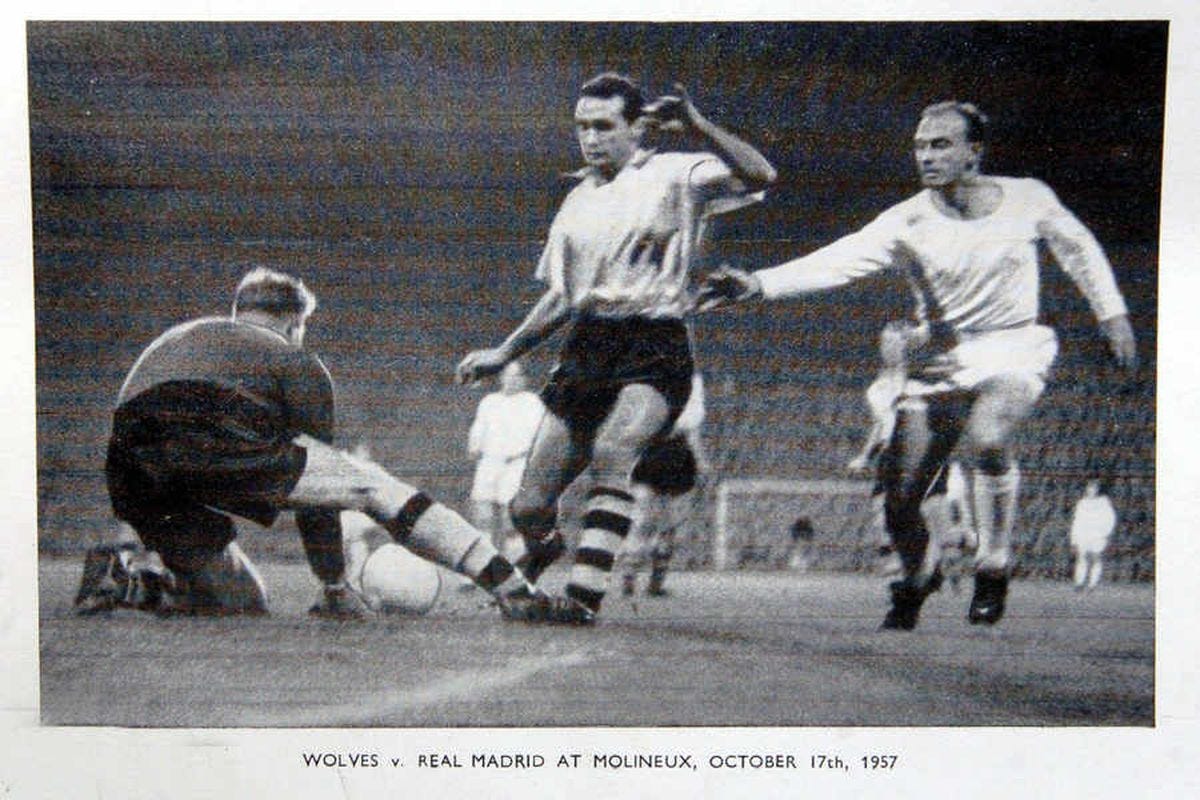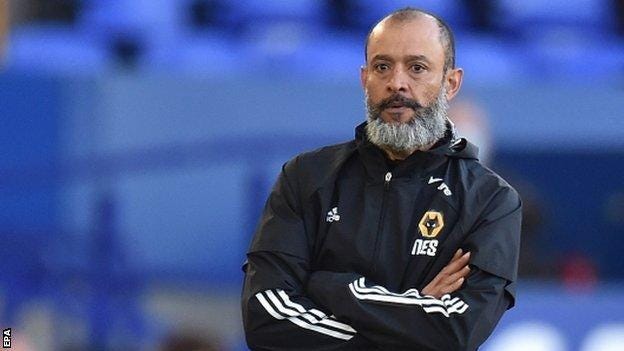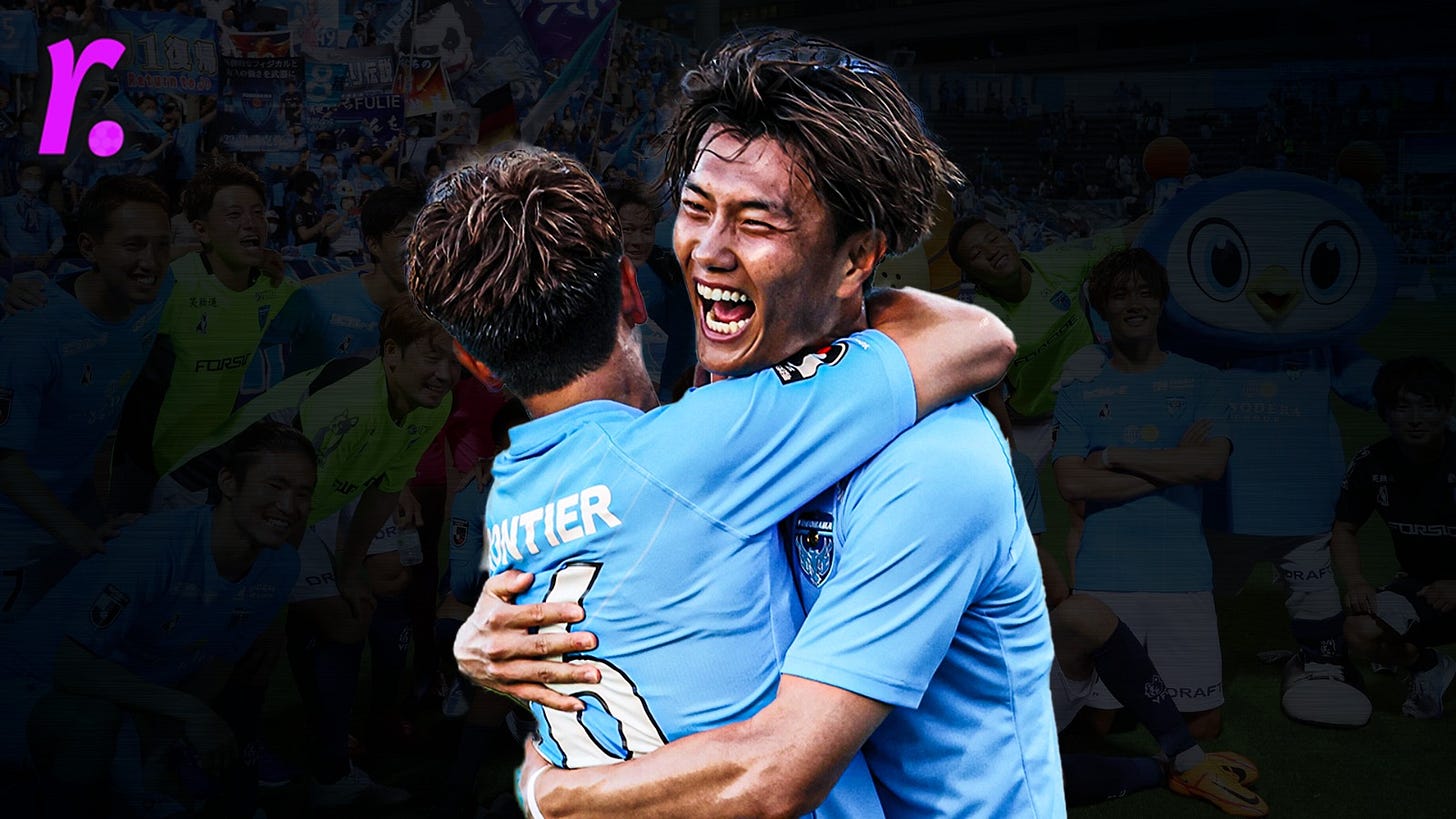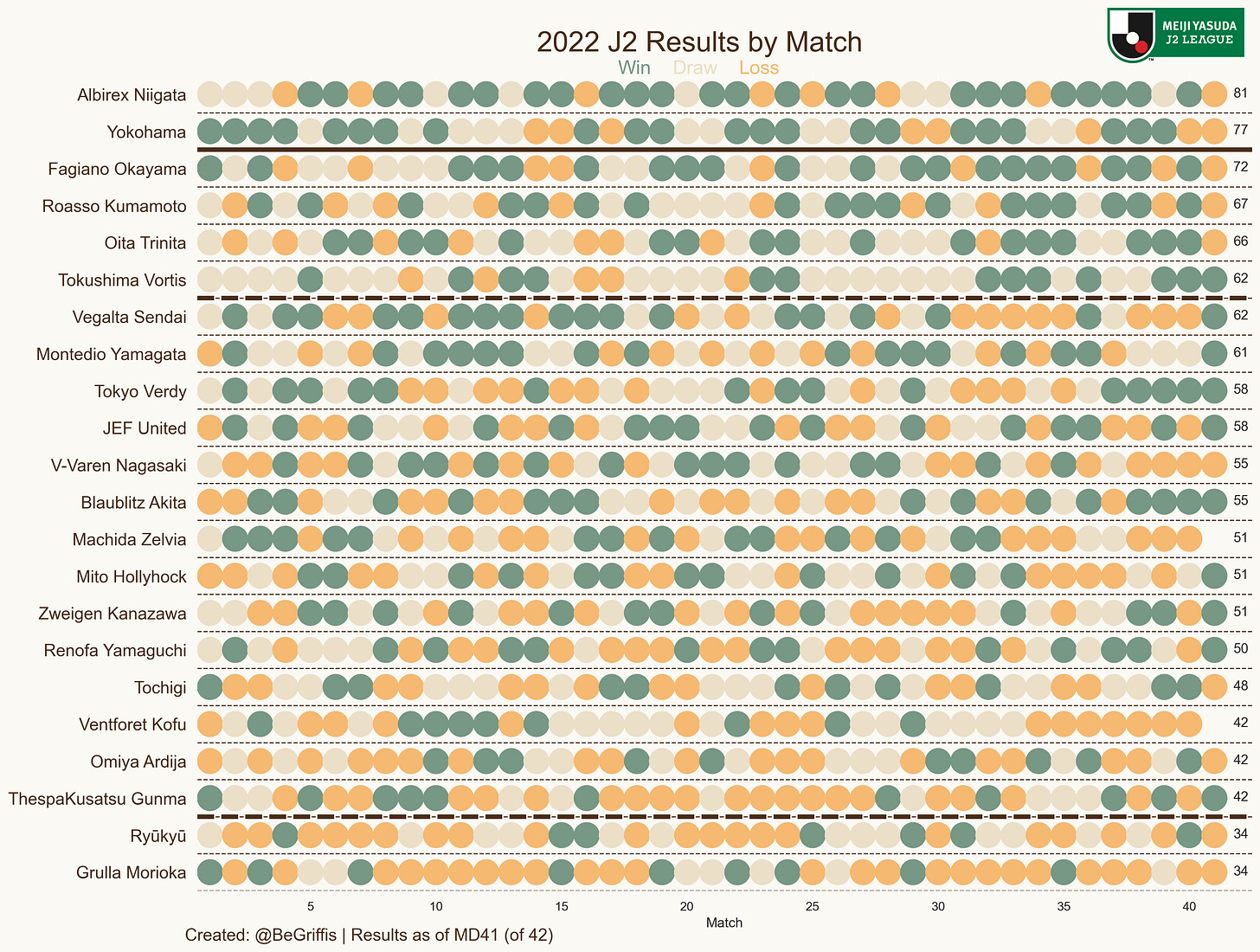Newsletter #006: A Global Game...With Global Stories
RTG Edition #006: Appreciate the beautiful game in all its forms. David, Chris, Ben & Alex take us on a journey throughout footballing space and time.
#006
A note from Ömer…
“Football is one of the world’s best means of communication. It is impartial, apolitical and universal. Football unites people around the world every day. Young or old, players or fans, rich or poor, the game makes everyone equal, stirs the imagination, makes people happy and makes them sad.” - Franz Beckenbauer.
Quite frankly, you may or may not be interested in this edition of Revamp The Game and that is absolutely fine.
There is no piece of footballing content within #006 that the masses would consider ‘relevant’ and I completely get any frustrations as a consequence of this. However, time and time again you have seen me talk regularly about the footballing bubble acting as a poisonous constraint upon our application and knowledge of the game. Which is why we, at Revamp The Game, look to champion footballing stories from all around the footballing world. I encourage you all not to be stubborn or close-minded to the topics you will read today.
Personally, my father has always reminded me of the fact that observation and the seeking of knowledge are the most important elements in leading a productive and meaningful life. He would also strongly remind me that these two components are and will always be completely free to access. It is up to ourselves to soak in the vast variety of information we are consistently exposed to, not only to broaden our own knowledge of football but also to help educate and enlighten those around us who seek such knowledge.
As the above quote from Franz Beckenbauer suggests, football is a global means of communication. Let the footballing world speak back to you, educate yourself within all aspects of it and do not confine yourself to the dogmatic view of a commercialised footballing world which tells you which leagues and players are relevant and which leagues and players are not.
This is why Revamp The Game will always be a platform that you, the reader, can access for free.
I urge you to read every entry in today’s edition. David’s knowledge of the UEFA Coefficient system is simply the best I know and he has single handedly educated me on a matter that I knew was vitally important to European football but until now ignored out of my own previous negligence to more technical matters in football.
Having had the pleasure of reading through Chris’s piece, I accessed a part of British footballing history that I never knew existed. It is a beautifully written article about a brilliant football club.
Ben produces another wonderfully crafted piece of work, enlightening me about the football scene in Japan, a region of the world where football is widely loved but ignorantly brushed aside. Not only has he broadened my horizons to Japanese football but Ben has also provided me with a new found appreciation of statistics and data in football. As someone with a strong Arts and Philosophy background, I have often expressed my love of football in a rather holistic and intangible way. Ben arrives from the opposite corner, yet via his work I feel his passion and love for football as much as I do my own.
Finally, Alex (The Euro Expert) delivers another immensely insightful entry about one of Europe’s lost talents. I envy the vast knowledge Alex has about the European game and I cannot think of anyone who possesses a greater understanding of all things European Football. Alex did not just attain this grand sphere of knowledge. I have seen the time and effort he puts into his craft and I would very much urge you to trust him on his ‘Talent Identification’.
Ömer Çayir, Editor-In-Chief
UEFA Reforms Are Coming. Beware.
A Time For Change…
We are entering an interesting time in European football.
This season’s results will finalise the access list for the UEFA club competitions for the 2024-25 season. That is the first under a new format, where the group stage will be scrapped and replaced with a league phase. Thirty-two teams will now become 36 at this round, which applies across all competitions.
Through three years of back-and-forth discussions from a plethora of different parties, UEFA has (almost) the major details about qualification and formatting for its club competitions. There are so many changes to note, but there is one that will affect the qualifying rounds in an incredible fashion.
As confirmed in a document leaked to the public on Monday, the rebalancing of the access list in titleholder situations will change. But what will they be? A bit of context is needed first before going into that.
The Initial Release…
Back in April of 2021, UEFA put out a press release with its new plans for the Champions League from 2024-25.
Not too many details were known at this point, but what was disclosed was the change in the competition. Some of it is mentioned above regarding the 36-team league phase. Initially there would be 10 games played in this round from each team. That would end up decreasing to a more manageable eight.
The real point of contention was where the extra four spots in the Champions League at the league phase would go. One would go to another domestic champion via qualifying, another would go to the third-place team from the fifth best country in the five-year country coefficient ranking (France).
The last two spots would go to the two highest ranked teams in the five-year club coefficient ranking that did not automatically qualify via their domestic leagues. So, a team could finish fifth in their league or lower, and qualify for UEFA’s flagship competition on the basis of having a high club coefficient.
What has changed in 13 months?
A little over a year later, UEFA amended their original release on the format. It came after more intense discussions with several parties where conflicting interests arose. It would not be easy to please everyone, which was evident.
Pressure from all sides forced the footballing organisation to get rid of the two wildcard spots in the UCL league phase. They tried to make small amendments to the idea, like adding a rule against leapfrogging. That would mean that a team could only finish immediately below a UCL place to be considered in the wildcard spot. That still was refused by most.
Instead, they went with what seemed like a more reasonable idea; the spots going to the two best countries in the 1-year coefficient from the previous season. They would send their next best club outside of the automatic UCL spots in their league into the competition. Seems like a great idea, only that it was a concession to the big leagues. That was confirmed by Dariusz Mioduski, the Legia Warszawa president who was part of the talks.

Club coefficient spots no longer considered, or are they?
So, we went through what happened regarding the change of those initial wildcard places. Club coefficient spots were no longer considered in determining who makes the league phase automatically. Or that was so we thought.
Back to the document released on Monday. It confirmed that there was a change in vacated Champions League and Europa League places. You see, there is an automatic berth in the UCL for the titleholders of that competition and the UEL. The same applies in the latter, where the Europa Conference League winners are assured a Europa League spot the following season.
But what if the UCL titleholder already qualified for the tournament domestically? That is when changes to the access list would be required. Right now, the champion from the next highest ranked country that does not have a guaranteed group stage place would take the extra spot in the main round. That is rather reasonable, and most do not have a problem with it. Similar ideas occur regarding the UEL and UECL defending champions.
That is now ditched. Here is what will now happen:
- Should the UCL winner qualify for the competition via domestic performance, the league champion in the qualifying rounds with the highest club coefficient will take the vacated spot
- Should the UEL winner qualify for the UCL via domestic performance, the highest ranked team by club coefficient due to start in UCL qualifying will snap up the vacated place
- Should the UECL winner qualify for the UCL or UEL league phase via domestic performance, the highest ranked team in UEL qualifying by club coefficient will take the vacated spot
It should be noted that in the latter two points, there is no leapfrogging allowed. That means if a country has two teams in Champions League or Europa League qualifying, only the higher ranked team via domestic performance will have a chance at claiming the vacated spot and not the lower ranked team through domestic performance.
Club coefficient idea not completely scrapped after all: good or bad?
One may look at this and think, what is the problem with this? Here is the way to see it: if this idea was a problem in the league phase, why should It not be in qualifying? A team from a higher ranked league possibly losing out to a champion from a lower league because the latter has a higher club coefficient.
Here is something some might miss out on: teams with these high coefficients from lower leagues, they are usually the ones that run away with their domestic league every season. Think of a Dinamo Zagreb (Croatia), or The New Saints (Wales), Sheriff Tiraspol (Moldova), Ludogorets (Bulgaria, or Olympiakos Piraeus (Greece). Now imagine one of these teams being assured a Champions League group phase spot just because they have a high club coefficient. That will continue to make the competitive imbalance worsen within that country since the aforementioned club will make millions of euros for taking part in the most prestigious club competition on the planet.
That is not to say this would not have happened under the current formatting, but at least the team would come from a higher ranked league. A source close to the reform talks confirmed that several big clubs from the sub-topper leagues pushed for more things to go in their favour. This just might have been their idea.
I will return to the question I asked earlier. If this idea of awarding clubs a spot in the UCL league phase on the basis of having a high coefficient is bad, why should it be any different in a titleholder scenario? There is a reason why a country is ranked 11th in the five-year coefficients and not 20th, for example. Rewarding one club for being consistent in Europe while the rest of the country’s clubs do nothing noteworthy does not set a good precedent for other clubs from that league.
So, while UEFA may have finalised this concept behind the scenes, it is an exceedingly dangerous plot-change. Who knows? Maybe this will open the door to this wildcard thing in the coming years when everyone reconvenes for talks on the 2027 competition...
David Parkes
Etched In Old Gold…
“It’s a bit of a cliché, but football really is the glue that holds us all together. Even on a global scale. It is the opiate of the masses.”
On a glittering Friday evening several years ago, I had the absolute pleasure of talking to the Mendelsson family. A family who share a special connection, from Ross-on-Wye to the Middle-East.
I thought I’d republish this tale to a new audience, as to this date it is one of my most proud pieces.
The family affiliation with the Old Gold began back in the Second World War, with Jonny and David’s Jewish father being evacuated from Nazi Germany on the kindertransport.
Emerging from the carriage came a fresh-faced, aptly named Wolfgang Mendelsson. The dynasty which has carried so far over three generations had begun.
Having been stationed in Cannock Chase (a bus-ride from Wolverhampton), Wolfgang had the world of Midlands football at his feet. Living close to both Molineux and Fellows Park, the then home of Walsall, he visited them on alternating weekends depending on who was at home.
“He was lucky enough that his parents moved down into London in June, which is where we grew up. You see the majority of Wolves fans who hate West Brom, or Villa, but for me it’s the Arsenal’s and Spurs’ of this world who frustrate me the most.’ Jonny told me.
“It’s understandable too because that’s where I got to know the game and they’re who all my friends supported. We have a real connection with Wolverhampton Wanderers, but the place of Wolverhampton doesn’t have that connection simply because we never lived there.”
Wolfgang saw later in his formative years the best side in the clubs’ history, with the success ridden era of the 1950s the most illustrious in Wolves folklore. The decade brought three league titles under the captaincy of Billy Wright and the management of Stan Cullis, with the Old Gold vying with Manchester United to be the best side in the British Isles at the time.
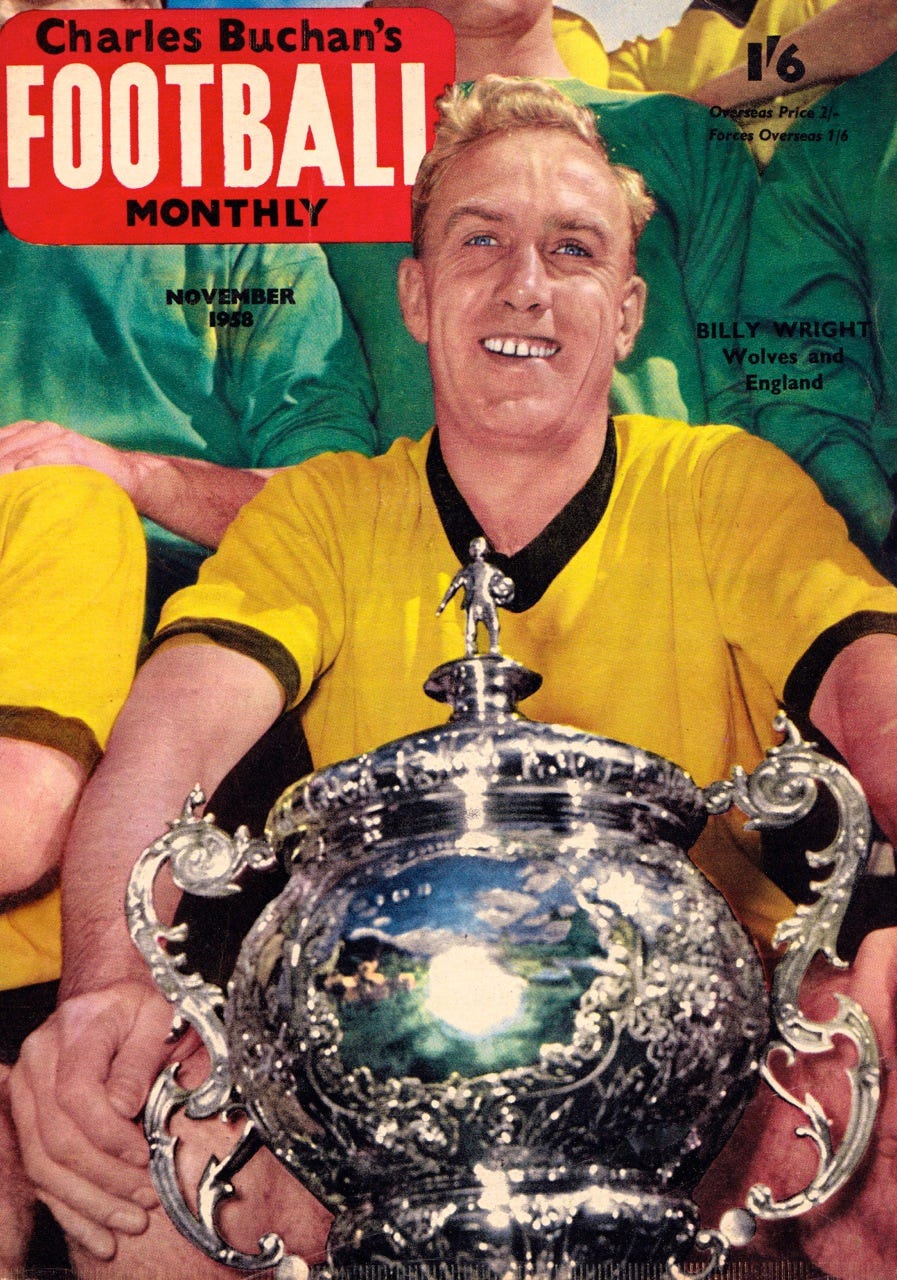
After Molineux became one of the first stadium’s in England to build floodlights, Wolves played a massive part in the introduction of the European Cup in this era. In the mid-50s they played the ‘floodlit friendlies’ first against Honvéd, fronted by Ferenc Puskas, and later Real Madrid, Dynamo Kyiv and Spartak Moscow.
Wolves defeating Ferenc Puskas’ Honvéd…
Cullis won Wolves five major honours in his time at Molineux and is immortalised by a named stand and a statue outside of the ground. Wright also heeds legacy and history in the Midlands.
So Wolfgang made his move down to the capital, marrying and having three children, two of which were sons, in the form of David and Jonny.
And he certainly didn’t waste much time teaching them the Wolverhampton way. David recounted his first match as an away game aged five against Fulham. However, as he was such a young age he failed to recall much of what happened during the game.
David, Itai’s father, moved to Israel in 1980, therefore not having the access to Molineux and the English game itself that he would’ve liked. But the day before his emigration came the opportunity to take on a then-dominant Liverpool side fresh from back-to-back European Cups and league titles. The 25th November brought the Reds to the Black Country. Managing to scrape a last minute ticket, David saw his side run out comfortable 4–1 winners. Goals from ex-Red Emlyn Hughes, Mel Eves, John Richards and Norman Bell saw the Reds crumble to defeat.
What Wolves Means To Me…
“Wolves is everything. Even from the other side of the world we find a way of staying in touch with everything that's going on. It’s a community, a club that brings everyone together. We have a family WhatsApp group so we can always discuss the games. It’s not like being there for every game but it’s as close as we can get.” - Itai
Coming from different eras, it’s remarkable that the two generations have experienced similar highs and lows for the Midlands club.
Although the younger Mendelsson’s have never experienced the fourth tier like the class of 1988, the side in Old Gold did experience a more recent spell in 2013/14 where they dipped to the third tier.
“It’s all so relative. Like it’s amazing now because we actually have expectation and we actually have a chance, but some of my best moments as a Wolves fan came under Jackett with ‘Dicko, Afobe, Sako!’. Obviously there’s more fans now than when we were in League One, but every game feels different and every game feels special. We beat Rotherham 6–4 and wow I’ll never forget games like that. But then we pinch ourselves like we just beat United 2–1! — Otto
For a side left in the third tier after a despicable season under Stale Solbakken and Dean Saunders in 2013, it would be extremely difficult to even comprehend where the club is six years later. After investment and diligence, the club finished seventh in the Premier League in 2018/19 and 2019/20.
Wolves At Wembley…
For the first time since 1998, Wolves had made an F.A. Cup Semi-Final - a 2019 bout with Javi Gracia’s Watford.
“We drove down, all of us absolutely buzzing for what we thought would be a real chance to get into a Cup Final,” Jonny said.
“Driving down the M40, seeing all the Wolves flags, it was mental! Stopping at the services seeing sombreros for Jimenez and of course that mask! People shame Jimenez for wearing the mask and celebrating prematurely but personally what would you do after going 2–0 up in a semi-final?”
To recount what happened that day, Raul Jimenez and Matt Doherty had given Wolves a seemingly unassailable 2-0 lead before Watford staged an unlikely comeback.
Otto said, a few days after the sickening defeat: “We seemed to have it in the bag, but things just weren’t meant to be. It was great that I could spend my first real experience of Wembley with my family, especially coming from far and wide. I am glad we can keep my grandad’s heritage going.”
The Mendelsson's. A family etched in Old Gold.
Chris Stonadge
A Look Back At Albirex Niigata & Yokohama FC’s Data in Their 2022 J2 Promotion-Winning Campaigns
Setting the Stage
This season in Japan’s second division, J2, was as exciting as ever, and it’s still far from over. However, the race for the title and second automatic promotion spot (the third spot is decided via playoffs) was wrapped up this weekend… with both teams losing. Even though there is still one match remaining in the regular season, both these teams technically have nothing left to play for, so let’s look back at their seasons.
Albirex Niigata won their first J2 title since 2003 and will be back in J1 after five mostly mid-table seasons in J2. This will be Albi’s 15th season in the pinnacle of Japanese football after a 14-year run from 2004-2017. Yokohama FC will return to the pinnacle of Japanese football after just one season in J2. This will be Yokohama FC’s 4th season in J1.
Both clubs were in the title race for the whole season. We had what appeared to be a three-team race just over a third of the way through the season before Vegalta Sendai’s performances fell off a cliff. Fagiano Okayama, who are guaranteed 3rd place, made a late push however it was perhaps a few weeks too late in starting.
For this article we’ll take a look back at some data for both Albirex Niigata and Yokohama FC. Please note that while these teams’ positions are set, they do have one remaining match. But in a 42-game season, this will have minimal impact on any of the data presented here.
The Results
First, let’s look at some results. This table shows the teams’ positions as they stand, their points (on the far right) and the results in order of calendar date, rather than round (as some matches were moved because of COVID).
We can see that both teams were relatively consistent throughout the year, with Yokohama FC’s streak of 5 winless games starting around match 11 perhaps their only real regret. Albi recovered nicely after starting winless in 4, however, so Albi’s ability to get wins proved the difference. Albi went 24-9-8 compared to Yokohama’s 22-11-8.
In terms of these teams’ results vs each other this season… well, there’s not much between them! Both teams won their home match by multiple goals. First, Albirex Niigata beat Yokohama FC 3-0 in Niigata on May 21st. About a month later, Yokohama FC beat Albi 2-0 in Yokohama. Often times in tight title races we might see the results between the teams making the difference. This season in J2, however, it was the results against the other teams that made the difference.
Results vs Expectations
This section is not about expectations for the season. Instead, we’ll dive into each team’s expected goals for and against each match and if they could pull out the wins they were supposed to, win games they weren’t, or maybe the opposite.
This chart shows the expected goals for (xG) and against (xGA) for each match and each team. The large points are the focal team’s matches, and the smaller, faded grey points are the other’s matches. Each match is colour-coded by the end result.
In charts like this, we can get a decent overview of how well the team performed each match. And by having two teams’ side by side, we can get a good comparison.
The first thing we notice is how many more games Albi had with a positive expected goal difference (xGD; below/to the right of the dashed line) compared to Yokohama FC. And we also see that Albi had many more matches above 2.0 xG than Yokohama FC, as well as many more matches below about 1.5 xGA. Not a surprise, given that Albirex Niigata won the title by 4 points with one match to go!
It gets interesting when we look at the team’s losses. I mentioned earlier that both teams have lost 8 games. Well, look at the losses for each team on this graph and what do you see?
Albi and Yokohama both lost 3 games with a positive xGD, and 5 games with a negative xGD. That tells us that the difference between these sides might really be the ability to turn draws into wins. And not by much, as the only thing separating these two sides on the table are two Yokohama draws and two Albi wins. This chart proves to us that Yokohama’s draws were the difference instead of, for example, a tendency to lose games with positive xGD.
However, when we look at each team’s draws it’s difficult to say the difference was Yokohama drawing games they should win. They were very good at winning games with a positive xGD, only drawing 2 of about 18 (11%). Albirex Niigata drew 5 of 27 (19%) of their positive xGD matches.
Yokohama FC were also very good, better than Albi, at turning negative xGD games into wins. So, where’s the difference?
The difference lies in Albi’s ability to outperform their opponents on the xG front. Since Albi had more positive xGD games than Yokohama FC, they didn’t necessarily need to be better than Yokohama FC at turning expected losses to draws or wins; they were able to perform largely as expected and let those expected results roll.
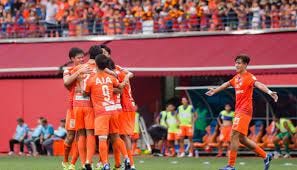
This bodes well for Albirex Niigata heading into J1. You’d back a team blowing away the competition but performing as expected to stay up over a team blowing away the competition but with results largely over-performing their expected results. It’s a discussion of fragility: Albi’s results weren’t that fragile, while Yokohama FC’s were relatively more fragile.
Will Yokohama FC be able to turn expected losses into draws and wins at a high enough rate next season playing against better teams? On the other hand, will Albirex be able to keep performing up to or a little better than expected next season, and against better teams will those expected results still be enough to stay up? Those are all questions and analyses for another day perhaps.
The Team Profiles
Now that we’ve talked about and compared results and performances, let’s take a look at how each team played—using data, of course!
These radars are a mix of both performance metrics (such as npxG, goals, etc) and style metrics (such as PPDA, possession, etc.). I caveat these with: for many of these metrics, a higher percentile does not mean a “better” team. A manager’s decision to press intensely does not necessarily mean they’re a “good” team. Goals, of course, do indicate performance and a higher percentile does typically indicate a better team.
These charts are great for both quick glimpses into a team and for sitting down to spend time seeing how each team’s metrics interact.
Albirex Niigata
Scanning quickly, we see that most of their attacking metrics (blue, top left) and defensive metrics (green, top right) are some of the best in the league. No surprise, given they won the title! Their possession metrics (orange, bottom) are a mix.
For brevity, I’ll explain their style without doing a deep dive, instead leaving that to the interested reader. Overall, this shows that Albirex Niigata dominated possession and made good use of short, mostly quick lateral passes before unlocking defences with some risky, defence-splitting balls. They hardly crossed, however, instead preferring to pass their way to the box and were successful at it. They were the most efficient team with their attacks in almost every way: they had the highest proportion of their counters and non-counters ending in shots, and despite having just above average npxG per shot and below average goals per shot on target, they led the league in npxG, shots, and goals.
In defence, their only weakness was in the air. Other than that, they were in the top 30% for every other performance metric. They pressed, but not much more than the average J2 side.
An exciting team winning the title of an exciting league. What’s not to love?
Yokohama FC
Certainly, a different style than Albirex! Overall, we see Yokohama FC’s style in possession being much like the average J2 team. Very little to dissect here. In defence they were also relatively average for their performance metrics, albeit were not great at stopping their opponent’s shots or forcing them into poor quality shots. They also pressed relatively little compared to the league average. Overall, Yokohama’s defence is perhaps interesting for the second-best team in the league.
That means that their attacking style and performances are most likely what defined them and carried them to the heights of J1. Having the most dangerous shots in the league (100th percentile npxG per shot) paired with a very strong shot on target % really helped propel them.
As we can see from this, Yokohama FC are another exciting side, perhaps more on the attack than in all phases like Albirex Niigata. No matter, they were still a joy to watch this season, as were Albi.
The Final Word
Looking back at the two best teams’ data, we can see the similarities and differences in each team. I think we’ve seen how Albirex Niigata were deserving title winners over Yokohama FC. The Curtain has not closed on the 2022 campaign, however, with both teams set for one final match before beginning preparations for the 2023 J1.
Ben Griffis (The Graphical Genius)
Euro Expert’s One To Watch: Marcus Thuram
The Rise, The Fall…
You may know the name Marcus Thuram for a variety of reasons.
Perhaps you are familiar with his father, the great centre back who won a World Cup and European Championship respectively with France in 1998 and 2000.
Maybe you are a fan of Football Manager, and remember the young Marcus breaking through at Guingamp in 2018, where the-then 21-year-old was a rising star playing at left wing.
Or perhaps, you are a fan of Borussia Mönchengladbach, tortured over the past few seasons by inconsistency and underperforming players. When Thuram arrived at the club in 2019, ahead of the new season with Marco Rose, there was much hype.
The Frenchman was arriving for €10m, a poultry fee that seemed a bargain. Thuram was valued at €12m at the time, and a few months and goals later, was valued at €25m. A year later, in November 2020, Thuram was talked up as one of the most exciting players in Europe.
A 6ft3, explosive winger with power and pace married with good finishing and runs, everything seemed on track. Until the injury issues hit. Since June 2020, Thuram has had seven separate injuries, many being muscular and knee issues.
The damage was done. Last season, Thuram finished with a meek goal tally of three goals. The season prior, he had hit eight, adding seven assists, which was still a decline from the 18 goals and assists in the 2019/20.
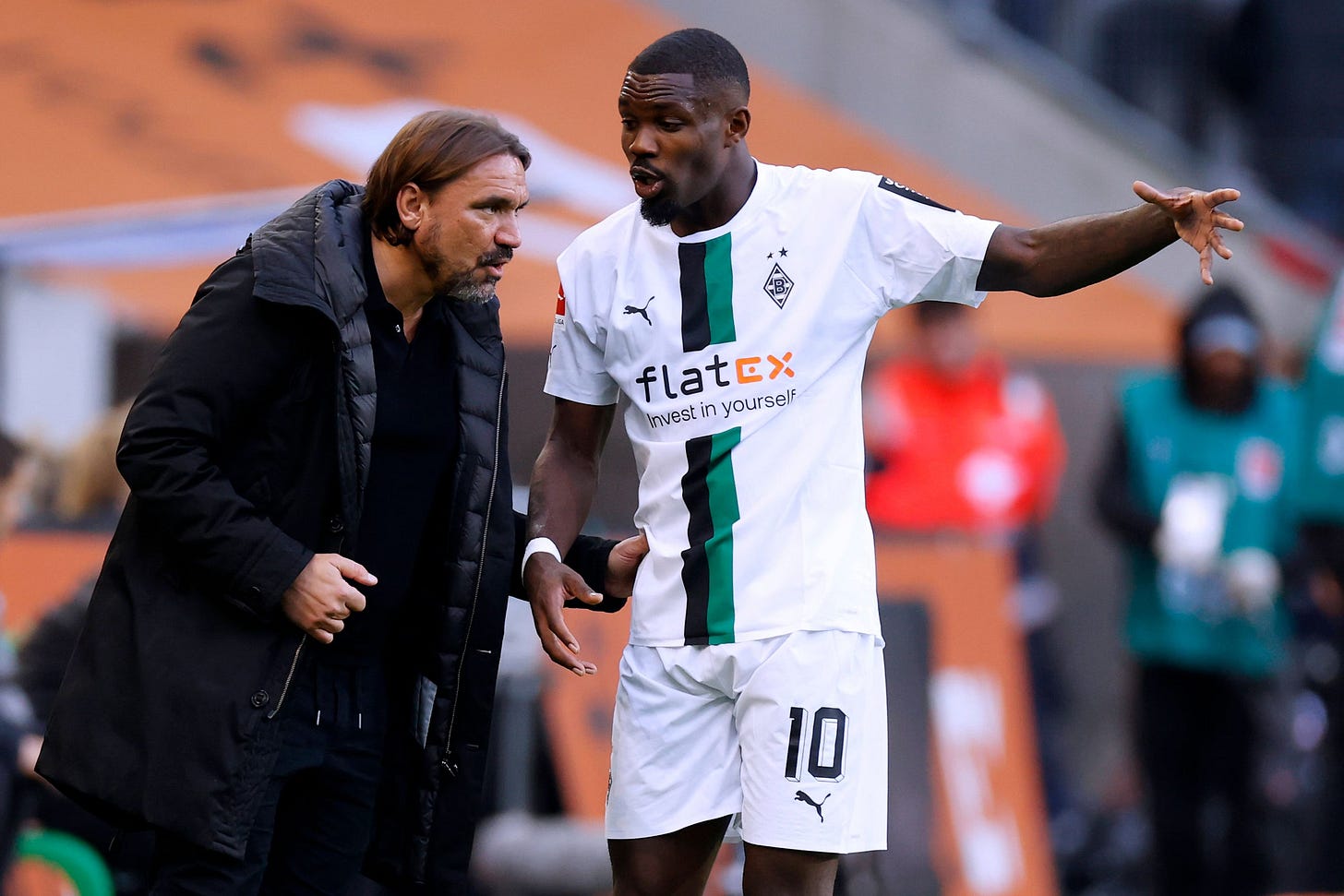
And Then He Rose Once More…
His explosiveness has pretty much gone, as well as his confidence seemingly. However, under former Norwich boss Daniel Farke, the prodigal son is back, with seven goals in ten Bundesliga games already. Get German Football News even came out to suggest that he should be considered for Didier Deschamp’s World Cup squad.
That’s not an outrageous shout, as while the pace isn’t quite what it was, Thuram has played as a centre forward for Gladbach and got into great positions for goals. He’s only slightly outperforming his expected goals, scoring seven from a NPXG of 6.4.
It also makes him the second highest scoring Frenchman in Europe’s top five leagues, only behind Kylian Mbappe. Thuram offers something that Mbappe cannot do either too, as Thuram is more of a well rounded striker.
Gladbach don’t specialise in long balls, completing less long passes p90 than the majority of their Bundesliga colleagues, but Thuram can still back himself into a defender if needed. He may not be as quick as he used to be, but he can still exploit space behind high lines too.
With three goals from his left and four from his right too, Thuram is adept at using both feet, and always has been. Playing down the centre plays into that though, rather than being a winger or inside forward.
Put simply, Thuram is certainly someone to watch out for in the coming weeks of German football, and potentially, the World Cup in Qatar. He may not have played a game since Euro 2020, playing nine minutes in France’s loss to Switzerland in the round of 16, but he should definitely be considered again for a spot in the squad.
(Above: Marcus Thuram’s successful 2019/20 season)
Alex Barker (Euro Expert)
Thank you for reading this week’s edition of Revamp The Game. Stay safe, stay well and enjoy the coming week of football :)
#RevampTheGame
